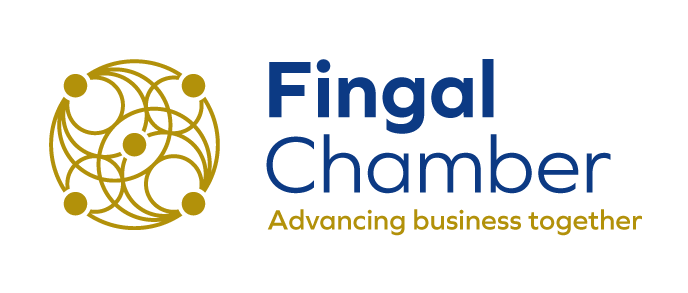New economic strategy for Fingal emphasises sustainability, skills development and infrastructure
Looking to take advantage of its strategic position on the Dublin-Belfast corridor, its strong transport connections and as home to a broad mix of key sectors, Fingal has today unveiled its plan to ensure the long-term economic resilience and sustainability of the county and highlight itself a key driver of growth in Ireland.
The Minister for Finance, Jack Chambers TD, joined the Mayor of Fingal, Cllr Brian McDonagh, to launch “Future Fingal: An Economic Development Strategy” at an event in Blanchardstown which was attended by business representatives, councillors and Oireachtas members.
The new strategy emphasizes a balanced approach to economic development, leveraging Fingal's strategic advantages and focusing on sustainability, inclusivity, and resilience.
The Mayor of Fingal, Cllr Brian McDonagh, said: “Fingal is a place where innovation and opportunity meet. Through our Economic Development Strategy we are committed to ensuring that Fingal continues to be an exceptional place to work and do business. This Strategy is not just a plan; it is our ambitious vision for the future of Fingal. Our aim is to lead by example by being both practical and forward-thinking.”
Prepared by Fingal County Council’s Economic Unit and Grant Thornton, the strategy, aims to support business in Fingal to grow and thrive in a sustainable way, with a strong emphasis on working with business to implement sustainable business practices, aligning with best European and global practices and working in parallel with the Council’s Climate Change Action Plan.
It builds on the socio-economic profile which was prepared as part of the process for Fingal County Council’s Local Economic and Community Plan 2023-2028 and outlines the actions that need to be taken to support the local economy over the next 15 years.
The Minister for Finance, Jack Chambers TD, said: “Fingal is one of Ireland’s most rapidly expanding areas in the country, with key infrastructural assets, and industries of considerable scope and scale. To help ensure its continued growth, it’s clear Fingal will need even greater collaboration across various stakeholders, including central government, the private sector, state bodies, representative groups, and educational institutions. The national economy is performing well currently but there are various economic and social challenges in the years and decades ahead. This report is an important piece of work which ensures the Fingal region is taking the necessary action to prepare its people, its business and it communities for this period of change, transformation and opportunity ahead.”
The “Future Fingal” strategy identifies six opportunities to further improving the Council’s vision of making Fingal the best place for businesses to invest, work and operate. These are:
- Sustainability
- Skills
- Vibrant Places
- Grow & Attract
- Infrastructure; and
- International
Within each opportunity there are a total of 19 objectives which will allow this rapidly developing county to maintain and grow a dynamic, inclusive and future-proofed economy by investing in skills and infrastructure as well as delivering targeted support for areas of disadvantage.
Covering almost half of County Dublin and with a population of 330,000 that is the youngest and best educated cohort in the country, Fingal is a major driver of Ireland’s economy.
The Chief Executive of Fingal County Council, AnnMarie Farrelly, said: “The goal of this Strategy is to attract inward investment, stimulate job creation, and allow us to develop and retain our highly skilled local talent. The Strategy has analysed global megatrends and the approaches of other areas, in Ireland and across Europe, to economic development and identified examples of best practice. This has informed the six opportunities, 19 objectives and the comprehensive action plan that will now drive us towards our goal of creating an economy that is dynamic, sustainable, and inclusive, enabled by strong infrastructure, collaboration, and skills.”
Among its strengths as an economic destination include:
- A strategic location along the Belfast-Dublin Economic Corridor.
- A young, diverse, and highly educated population with the highest labour force participation rate in Ireland.
- An affluent county where 67% of its 116,000 households are owner-occupied.
- Strong transport connections, which include the M1, M2, M3 and M50 motorways, rail connections, Dublin Airport, and easy access to Dublin Port.
- Developed sectoral clusters including Agri-food, ICT, Pharmaceuticals, Aviation and Logistics.
- A vibrant Tourism industry which includes key cultural and heritage attractions such as Malahide Castle.
- Access to third level education, including the TUD Blanchardstown Campus and proximity to other leading institutions like Dublin City University.
- Adequate industrial zoning across the county.
As part of the strategy, Ireland’s youngest local authority will also look to build its international presence through networks, trade, and promoting its unique economic offering as a means to develop tourism and attract foreign direct investment.
Future Fingal: An Economic Development Strategy can be read here: www.fingal.ie/media/17902
Watch the interviews here www.vimeo.com/1006213303


